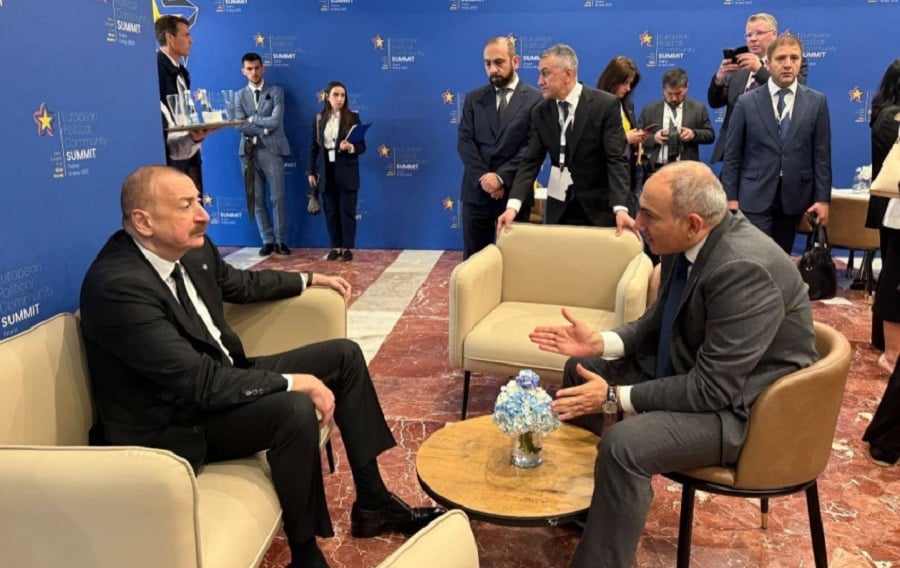“ACNIS ReView from Yerevan” . In Armenia, there has almost always been a historically shaped, unfriendly attitude toward Turkey and its “younger brother” Azerbaijan rooted in the Armenian Genocide. Perhaps the only exception to this rule was the fairly long period of Soviet rule, when Armenia and Azerbaijan—two of the fifteen republics—were considered fraternal states. The brotherhood may have been imposed, but it was nevertheless a comparatively neutral phase in Armenian–Azerbaijani relations, marked by respect, a degree of mutual understanding, and, to some extent, even a tendency toward friendly ties.
The beginning of Armenian–Azerbaijani estrangement dates back to the 1980s and 1990s, when Baku responded to Artsakh’s lawful demand for self-determination with the bloody Sumgait massacres organized at the highest state level. The violence quickly spread to Baku, and historic Armenian lands Gandzak, Shahumian, Maragha, and other Armenian-populated regions of Azerbaijan. During those days, not a single one of the 140–150 thousand Azerbaijanis living in Armenia suffered even a nosebleed—unlike the 600–650 thousand Armenians living in Azerbaijan. The Azerbaijanis sold or exchanged their homes and property, received proper compensation, and left Armenia safely with their families.
Now, about 35 years later, Azerbaijan intends to return those families to Armenia—families whose numbers have since doubled and tripled—under the label “Western Azerbaijan,” a toponym that has never existed and was invented by Heydar Aliyev’s son. The supposed refugees of the neighboring country would, of course, very much like to return: the “taste” of Armenia has stayed with them to this day. But it is highly doubtful that any Armenian who fled desperately from various cities and villages of Azerbaijan in the late 1980s—narrowly escaping for their lives to Armenia or elsewhere—would ever want to return to their former places of residence, where Armenian civilization has been destroyed. Hardly. For Armenians, regardless of which country they are citizens of, Azerbaijan is a clearly declared closed state.
So why have the Armenian authorities fallen silent instead of countering Aliyev’s ramblings? The prime minister, who measures everything with the yardstick of peace, timidly stated that the issue of refugee return is dangerous and may hinder the Armenian–Azerbaijani peace process. But the National Assembly speaker gave an even more peculiar and troubling comment. He appears enchanted by Aliyev’s cynical statement that “Armenians should not fear our entering Irivan; we will not come in tanks—we will enter by car.” Alen Simonyan enthusiastically echoes this part of Aliyev’s message—especially the bit about entering Yerevan by car. In a strange way, it even seems to make him happy.
Read also
And it appears that many other Civil Contract–affiliated officials share this euphoria—from the number one official, who does not take offense at being called a Turk, to the MP nicknamed “Lulu,” known for her uncontrollable desire to “bow before the Turkish nation.” So, Turkophilia is not a new phenomenon here; it nested in Armenia’s ruling pyramid in 2018, then quietly and silently seeped into the Armenian public sphere, becoming an appendage to our geopolitical agenda—an “uninvited guest.” Therefore, we should not be surprised about when, how, or from where such an infection “broke out” in Armenia—what we may conditionally call the syndrome of pro-Turkism.
Today, pro-Turkish sentiment is quite widespread in Armenia. It affects not only the entire ruling elite but also a dull, amorphous segment of society for whom the Armenian Genocide of 1915 is an uninteresting story and Artsakh is a heavy burden. Earlier, the National Assembly speaker cited the example of Georgians, noting that in Tbilisi they interact amicably with Azerbaijanis and that the same could be organized in Armenia. Alen loves pomegranates very much and longs for the day when his Azerbaijani ‘kerva’ (sworn brother) will bring pomegranates from Aghdam to sell in a Yerevan market—and, undoubtedly, will not forget him.



















































